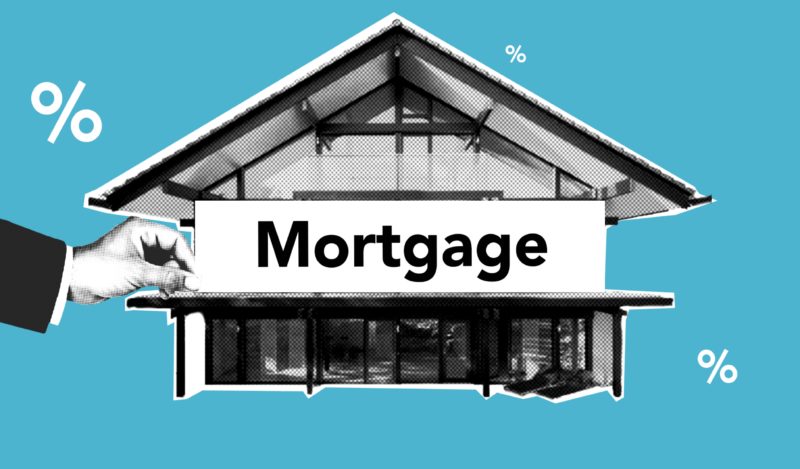The Guild: Cybercrime claims are on the rise, agents need to prepare
Paul Offley, Group Compliance Officer at epropservices, which includes The Guild of Property Professionals and Fine & Country, has come forward with advice in light of the increasing cybercrime-related cases impacting estate agents.
Offley said: “It seems that the property sector is a prime target among cyber criminals and every few weeks we hear of more cases where businesses have been hacked and someone has got into their system and is trying to defraud consumers.
“The criminals who are behind these cases seem to be intelligent individuals who can mirror emails and make it look as though the information that is sent by them to consumers appears to be legitimate and as if it is coming from the business.
“These types of cases are on the rise and is something that I believe will continue to increase as we go into 2022.”
The increase of remote working, according to Offley, has acted as a catalyst and made many smaller businesses more susceptible to cyberattacks.
“In the past large-scale corporations with strong cyber defences have fallen prey to hackers, so how much more vulnerable are smaller businesses and remote workers connecting to their networks. Often small businesses and remote workers have a less robust cyber defences making them easier targets, which in turn is pushing the number of cyber-related crimes up.”
The Guild offers its members access to free Professional Indemnity and heavily discounted Cyber-crime insurance to ensure they are protected should an incident arise, and he strongly recommends that all agents review their level of cyber cover with their own insurance brokers.
Not all professional indemnity policies offer full cyber cover, or the same benefits of a standalone cyber policy. Bearing in mind, 95% of cyber insurance claims are due to human error.
“It could be a simple matter of selecting the incorrect name when sending an email, which might contain some personal information or confidential data. It could also be because someone in the office has shared their password with someone they should not have, even if they are a colleague.
“No password should be shared with anyone within your organisation other than the person in your business responsible for data protection. In addition, passwords should be complex, so they are difficult to try and replicate.
“Agents should also ensure that they have processes in place that deal with someone leaving the business, all of their passwords and access to personal and company data has been removed.’
“Clearly no business is infallible, especially when it comes to a potential cyber-attack, it is best to have preventative measures in place to prevent any risk.”
View more Property News Briefings
Where is mortgage lending going to end up?
For many years, when I was an estate agent in the 1980s and 1990s, the amount of income required to buy a home was a simple equation. The multiplier was three or three and a half times a person’s salary, varying depending on the lender.
In those days, a semi-detached home was £60,000. Now in some areas, the multiple to be applied is seven or more times a standard salary to get on the lowest rung of the property market, even accounting for inflation. Something seems to be out of line.
Another thought worries me, that of the PRS Private rental sector and the housing association sector, where many people are now renters for life. The tenants may be paying over £1,000 a month in rent, yet they cannot get a mortgage.
But the person next door, living in the same property type, who has a deposit and could get a mortgage, only pays £460 a month with the option of a mortgage holiday, or they can take chunks of cash out of their equity and leverage their property asset. It is clear that something strange is happening and things do not add up.

Let’s do some maths. If a tenant pays £1,000 for ten years, which is £120,000 in rental payments, they own nothing.
Meanwhile, next door is on a 10-year fixed mortgage, paying £55,200 in the same period. They’ll probably see a rise in their equity, by about 20%, and the size of their mortgage would have reduced by some tens of thousands of pounds.
Yet the lenders and underwriters would say that the tenant is the greater risk. But if they actually are good for nearly twice as much cash as the mortgage payer next door, how can this be? The number one thing that all people want is to keep a roof over their head, so not paying the rent is as likely as not paying the mortgage.
Another thing that worries me a lot, and I have dealt with over 18,000 properties going to market, is the cost illusion model, which unfolds when a first-time buyer sits down and applies for a mortgage. That mortgage is for 25 years, or perhaps even 35 years.
In fact, this is fiction. How many people stay in a relationship that long these days? How many people stay in the same home for that period? If they sell, they’re just going to start another fiction with a new full-term mortgage.
Maybe with artificial intelligence and some coding and some machine learning, all that technical stuff that makes the world go round, when a couple sits down in the near future will the lender know even more truth about what they are underwriting?
They will know on average that couples stay together X amount of years, and the likelihood that this couple will move in Z years is Y. Based on that, a credit agreement or mortgage tailored to this reality can be put together.

Mortgage lending has a lot of growing up to do in this rapidly changing world of fintech and proptech, a world where the digital locusts want everything fast and furious, arriving in a cardboard box with a big smile.
Take, for example, Revolut, which is just applied banking software rather than being a bank, is scaling up ferociously around the globe, allowing people with cash to do things quickly, so much so that Revolut has a market capitalisation greater than the Natwest banking group.
Maybe we are about to enter a watershed moment, where mortgage lending and even the mechanics of lettings will change to give a fairer deal for all. After all, new technology’s reach doubles each year and it waits for no one. It’s a thought.
Andrew Stanton is the founder and CEO of Proptech-PR, a consultancy for Founders of Proptechs looking to grow and exit, using his influence from decades of industry experience. Separately he is a consultant to some of the biggest names in global real estate, advising on sales and acquisitions, market positioning, and operations. He is also the founder and editor of Proptech-X Proptech & Property News, where his insights, connections and detailed analysis and commentary on proptech and real estate are second to none.












